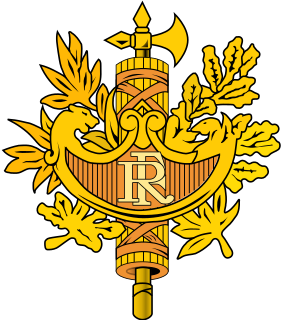| Look up regulation in Wiktionary, the free dictionary. |
Regulation may refer to:
- Government functions:
- Regulation of the polity, economy and society
- Regulatory economics
Regulation is an abstract concept of management of complex systems according to a set of rules and trends. In systems theory, these types of rules exist in various fields of biology and society, but the term has slightly different meanings according to context. For example:
Regulatory economics is the economics of regulation. It is the application of law by government or independent administrative agencies for various purposes, including remedying market failure, protecting the environment, centrally-planning an economy, enriching well-connected firms, or benefiting politicians.
- Regulation (European Union), Union legislation effective in member states without implementing legislation by them
- Regulation, secondary or delegated legislation, by the executive branch pursuant to leave of the legislative branch
- Regulations, class of statutory instruments
- Regulation (magazine), Cato Institute publication re moderation of government regulation

A regulation is a legal act of the European Union that becomes immediately enforceable as law in all member states simultaneously. Regulations can be distinguished from directives which, at least in principle, need to be transposed into national law. Regulations can be adopted by means of a variety of legislative procedures depending on their subject matter.
In many countries, a statutory instrument is a form of delegated legislation.
Regulation is a quarterly periodical about policy published by the Cato Institute. It was started as a bimonthly magazine in 1977 by the American Enterprise Institute and acquired by Cato in 1989. Past editors have included former Supreme Court justice Antonin Scalia, Murray Weidenbaum, Christopher DeMuth, Walter Olson, and Peter Huber. Peter Van Doren has edited the magazine since 1999.
- Regulation of gene expression, the biological process where genes are selectively expressed
- Control in electrical subsystems:
- Voltage regulation, degree to which a device's output voltage remains nominal
- Categories of voltage control:

Regulation of gene expression, or gene regulation, includes a wide range of mechanisms that are used by cells to increase or decrease the production of specific gene products. Sophisticated programs of gene expression are widely observed in biology, for example to trigger developmental pathways, respond to environmental stimuli, or adapt to new food sources. Virtually any step of gene expression can be modulated, from transcriptional initiation, to RNA processing, and to the post-translational modification of a protein. Often, one gene regulator controls another, and so on, in a gene regulatory network.
In electrical engineering, particularly power engineering, voltage regulation is a measure of change in the voltage magnitude between the sending and receiving end of a component, such as a transmission or distribution line. Voltage regulation describes the ability of a system to provide near constant voltage over a wide range of load conditions. The term may refer to a passive property that results in more or less voltage drop under various load conditions, or to the active intervention with devices for the specific purpose of adjusting voltage.
- Line regulation, compensation for variations in supplied voltage
Line regulation is the ability of a power supply to maintain a constant output voltage despite changes to the input voltage, with the output current drawn from the power supply remaining constant.
- Load regulation, compensation for variations in demand





